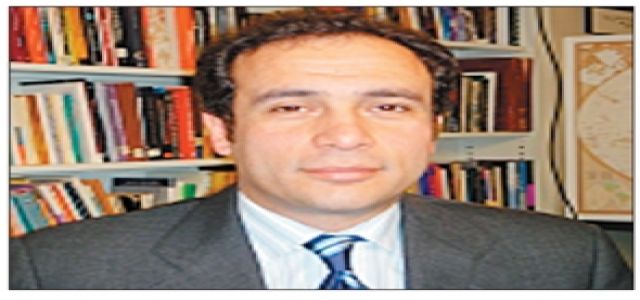|
|||||||||
| :: Issues > Activites | |||||||||

Obama One More Time
The Arabs make a mistake if they look at Obama’s victory of the US presidential elections from their regional perspective or try to understand quite hastily how US policies in the Middle East might change.
|
|||||||||
| Friday, November 14,2008 07:34 | |||||||||
|
|||||||||
|
The Arabs make a mistake if they look at Obama"s victory of the US presidential elections from their regional perspective or try to understand quite hastily how US policies in the Middle East might change. Obama"s victory has important humanitarian meanings and we have to mull them over before reading his success from a regional point of view. The US society has once more used its amazing vitality and liberal beliefs to change itself and get rid of those far-right policies and practices which plunged it in a series of unprecedented domestic and international crises and made it lose its equilibrium, humanity and glamour. The Americans have chosen to put an end to the era of neo-conservatives, fundamentalist right-wing policies and people in love with the US military power. They did so quickly and firmly by electing a person of African origins and entrusting him with carrying out the required change. This is the core of the matter. Its most important humanitarian meaning is that the US society is trying to re-discover its liberal belief and to get rid of the creed of fear. This creed has been shaped by Bush and those with him in the aftermaths of 9/11 and has allowed them to stay in power for eight years. Now, the majority of this society has got the better of its traditional fears by electing a candidate of African origins and an Islamic background. As Arabs, let us take a step backward and mull over these meanings. Let us admit that the US society has dared change and use democracy while the world is actually witnessing large-scale deterioration. Our Arab societies are almost unable to shape balanced relations between their majorities and minorities, while their citizens have no say. As for Western European societies, where democracy is deeply rooted, they suffer from several dilemmas: people do not turn out to vote, politics is losing credibility, and minorities are still relatively marginalized from a political point of view. It seems impossible and socially rejected to see a non-white and non-Christian person become a political leader in Britain, France and Germany. We, as well as other peoples lacking democracy, whose destiny is decided by a political elite which cannot be accounted for what it does, we have to meditate on democratic vitality as a model and on mechanisms for self-correction. Peoples, though, can become aware of such mechanisms when they wake up after a long lethargy, even if just for a few seconds. At the end of the 1980s and the beginning of the 1990s, we made a mistake when we read the collapse of the Soviet Union and Socialism by making some superficial expectations about the international and regional repercussions of this event. However, we did not ask ourselves major questions posed by the collapse of systems which had repressed individual liberties, wanted to create societies with no differences and had eventually created isolated societies having nothing in common. At the beginning of the new millennium, we all forgot doing some well-deserved self-criticism after 9/11. Instead, we blamed the others and started talking about plots which distracted us from our faults. Today, can we have a new look at Obama"s victory and reconsider, from a wonderful US perspectives, the reality of our countries and societies? Can we look for some way-outs bringing us closer to the bright aspects of human civilization? |
|||||||||
|
Posted in Activites , Election Coverage , Obama |
|||||||||
|
|||||||||
|
|
|||||||||
| Related Articles | |||||||||
|
|






